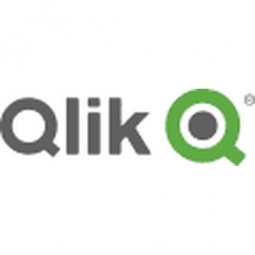Download PDF
Mercedes-Benz Steers After Sales Business with Real-Time Access to BI in QlikView
Technology Category
- Analytics & Modeling - Real Time Analytics
- Application Infrastructure & Middleware - Data Exchange & Integration
Applicable Industries
- Automotive
Applicable Functions
- Sales & Marketing
- Human Resources
Use Cases
- Predictive Maintenance
- Real-Time Location System (RTLS)
Services
- Software Design & Engineering Services
- System Integration
The Challenge
Mercedes-Benz India was facing challenges in empowering its users to access and analyze data in near real-time. The company was struggling with an ineffective reporting process to senior management, which was time-consuming and inefficient. The reports were pre-defined and static, which made it difficult for the company to make informed decisions. The company was using Siebel as its foundation for dealer management system (DMS), but the internal teams were required to extract data from DMS manually to create reports for the central management team. This was a time-consuming and ineffective process. The company needed a robust, flexible CRM/DMS and business intelligence solution as its foundation.
About The Customer
Mercedes-Benz India, a subsidiary of Daimler AG, was founded in 1994. The company manufactures luxury cars for the Indian market at its Chakan plant near Pune. Mercedes is considered a pioneer in the market and one of India’s top 100 most trusted brands. Mercedes has the densest network among all luxury car manufacturers in India. Currently present in 31 cities and with 72 touch points, Mercedes expects these numbers to continue to grow as it looks to increase the market share in the top-end luxury segment to around 30 percent by 2022.
The Solution
Mercedes-Benz India deployed QlikView business discovery software into its after-sales environment in just four weeks. The solution was then implemented across the Network for Sales and Aftersales functions, and for Plant Operations and HR functions in MB India, exceeding 300 users. The solution now plays a pivotal role across the entire business with information from the back-end ERP/DMS systems getting updated in QlikView at specified frequencies varying from two hours to nightly updates depending on the business needs. The solution was initially deployed centrally and took only four weeks for the first version - from an initial needs analysis with the relevant business heads, to a fully customized, tested and rolled out solution. Once the users were satisfied with the overall presentation and contents, Mercedes-Benz then followed this up with a gradual rollout to each of its dealerships across the country.
Operational Impact
Quantitative Benefit
Related Case Studies.

Case Study
Integral Plant Maintenance
Mercedes-Benz and his partner GAZ chose Siemens to be its maintenance partner at a new engine plant in Yaroslavl, Russia. The new plant offers a capacity to manufacture diesel engines for the Russian market, for locally produced Sprinter Classic. In addition to engines for the local market, the Yaroslavl plant will also produce spare parts. Mercedes-Benz Russia and his partner needed a service partner in order to ensure the operation of these lines in a maintenance partnership arrangement. The challenges included coordinating the entire maintenance management operation, in particular inspections, corrective and predictive maintenance activities, and the optimizing spare parts management. Siemens developed a customized maintenance solution that includes all electronic and mechanical maintenance activities (Integral Plant Maintenance).

Case Study
Monitoring of Pressure Pumps in Automotive Industry
A large German/American producer of auto parts uses high-pressure pumps to deburr machined parts as a part of its production and quality check process. They decided to monitor these pumps to make sure they work properly and that they can see any indications leading to a potential failure before it affects their process.









